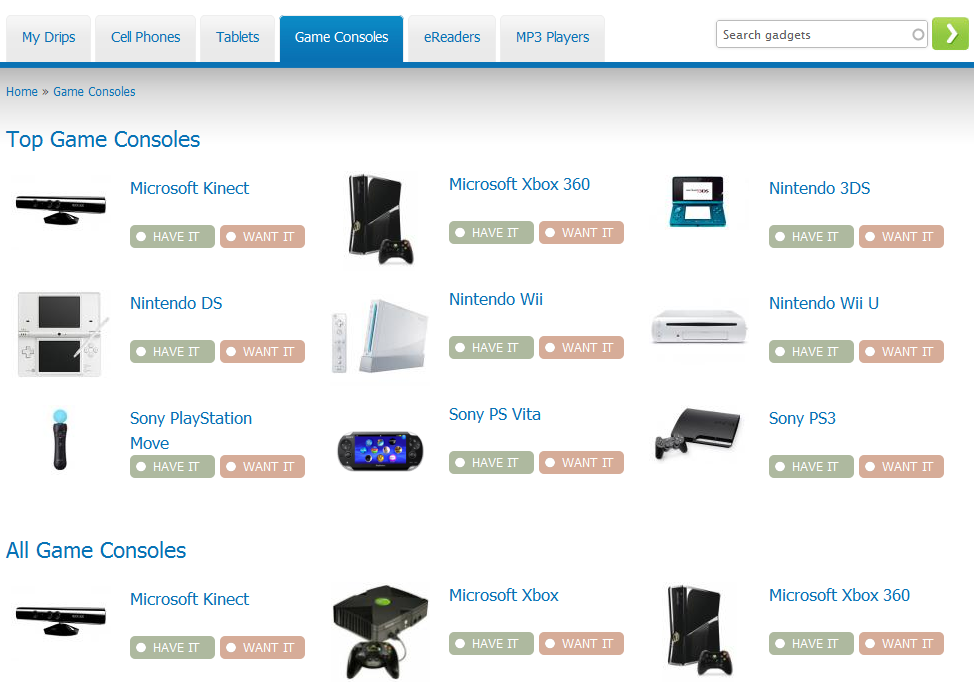I was approached by a startup that is today launching Drippler, a service that lets people get custom updates (think news, tips, support and more) about the gadgets they own and love, or want to own and love.
I liked the idea at first, even if it sounded a whole lot like the original premise of gdgt (our launch coverage) before they – wait for it – pivoted.
Drippler is basically a free website / mobile application that provides consumers with personalized updates about consumer electronics, ranging from smartphones to ereaders and gaming consoles.
Their aim is to become a centralized hub for gadget lovers and cravers to find news, rumors, tips and tricks, tech support, apps, accessories and whatnot.
The company has raised $250,000 in seed funding from investors like Reuven Agassi (founder of Top-Tier, acquired by SAP), Yanki Margalit (founder of Aladdin Knowledge Systems) and David Assia (founder of Magic Software Enterprises).
Here’s the thing though. Drippler takes content from sources like tech blogs and gadget review sites and attempts to hijack the conversation on their own website. They link to the source, but don’t consistently mention the name of the source, nor its logo, nor the name of the author.
In my mind, this isn’t any better than all those auto-rebloggers us tech bloggers need to deal with.
Drippler co-founder and CEO Matan Talmi sees things differently. He posits:
We think of it as another layer between the users and the content, which collects the relevant content, thus providing more traffic and exposure to the sources and value for the users. We always link to the source and actually get many requests from sites to add them as a source, and we only use syndicated content, so the sources always have control on how much of the content is used. Kind of like Google News, only specializing in gadgets.
Except sites like Google News and Techmeme are aggregators and go out of their way to attribute content to the author or publication. Drippler instead attempts to hijack the conversation by letting users comment on, favorite and share articles as if the content were theirs.
In short, I like the idea behind the service, but don’t agree with the way they’re going about it.
Thoughts?

